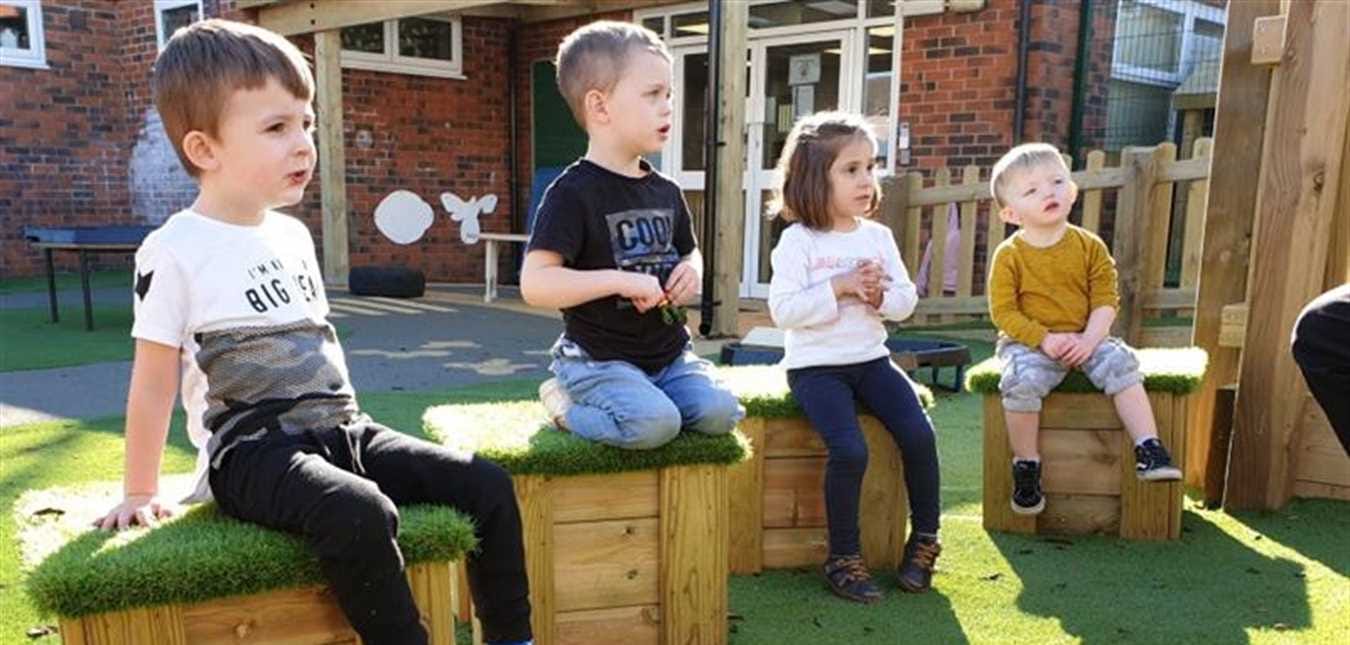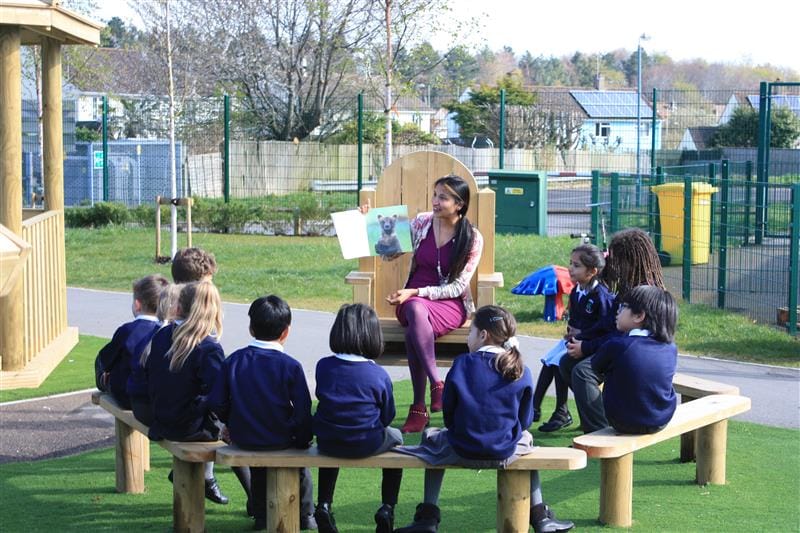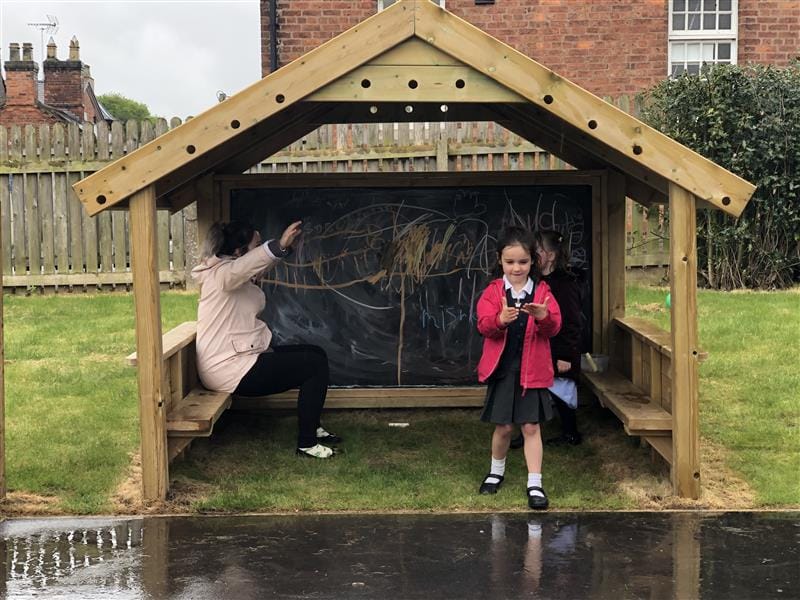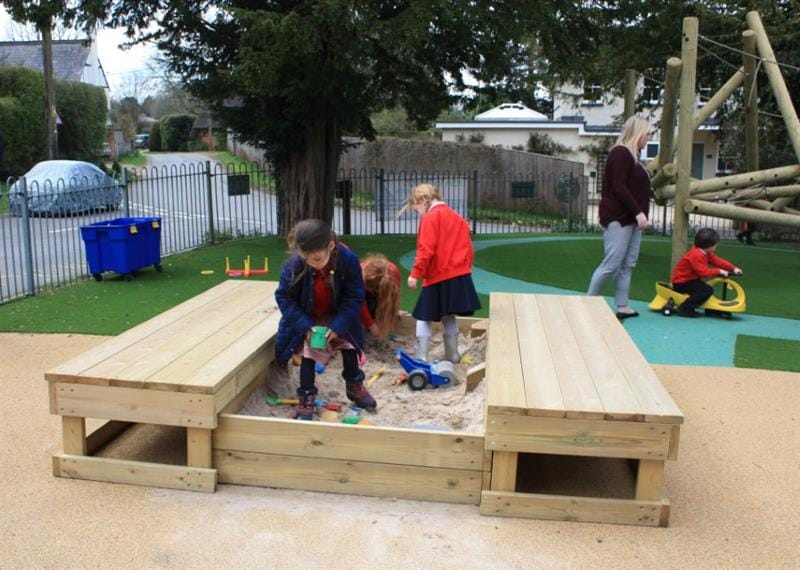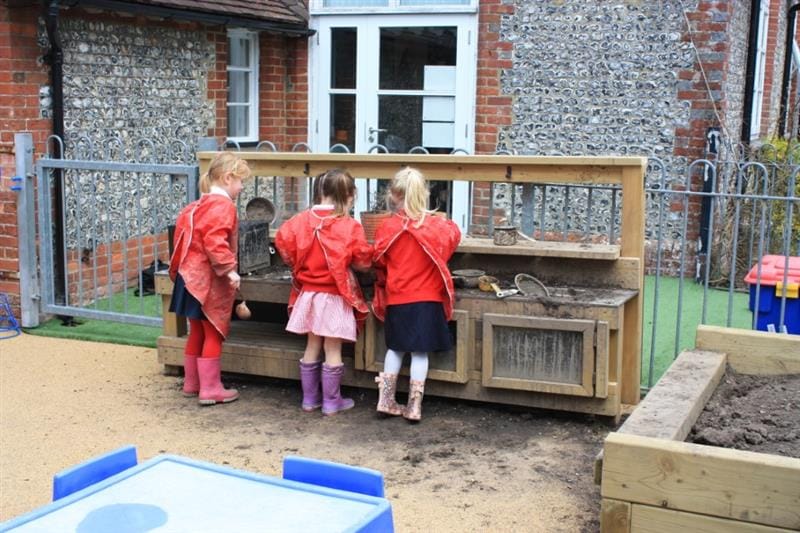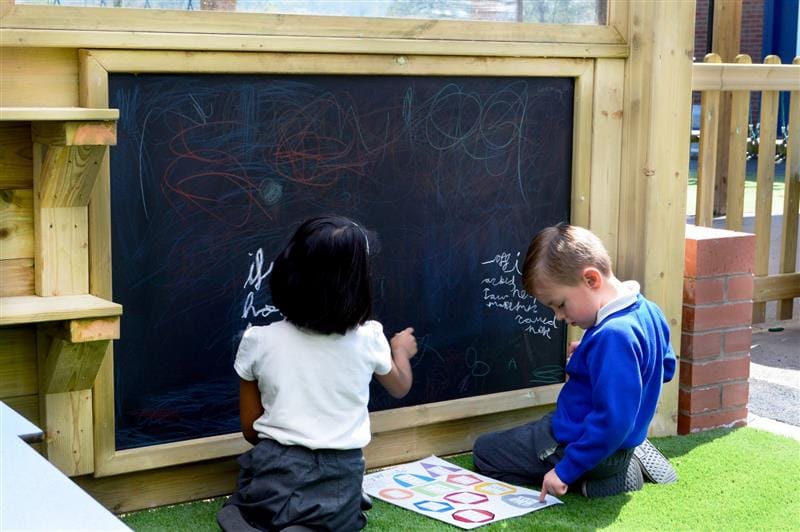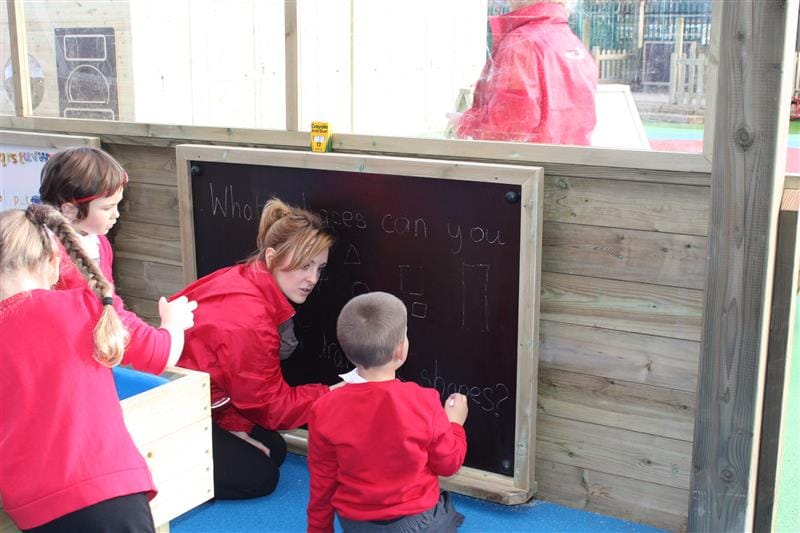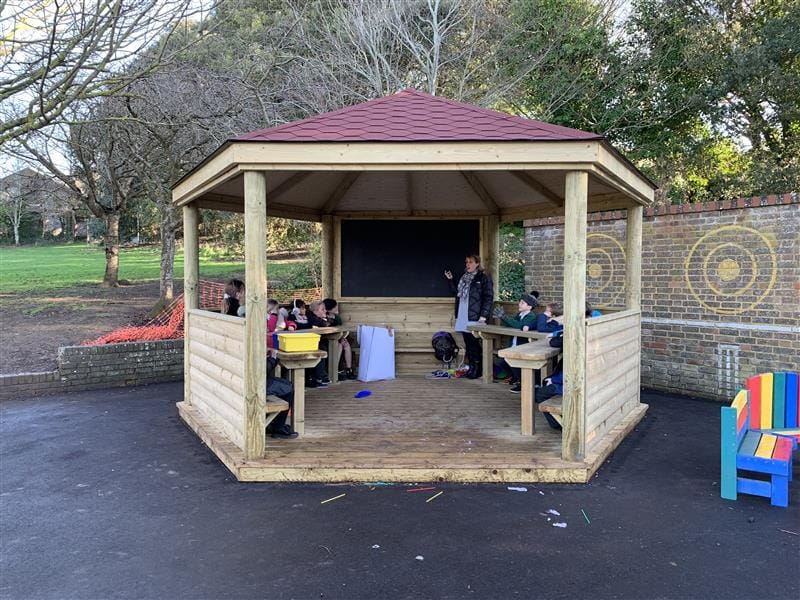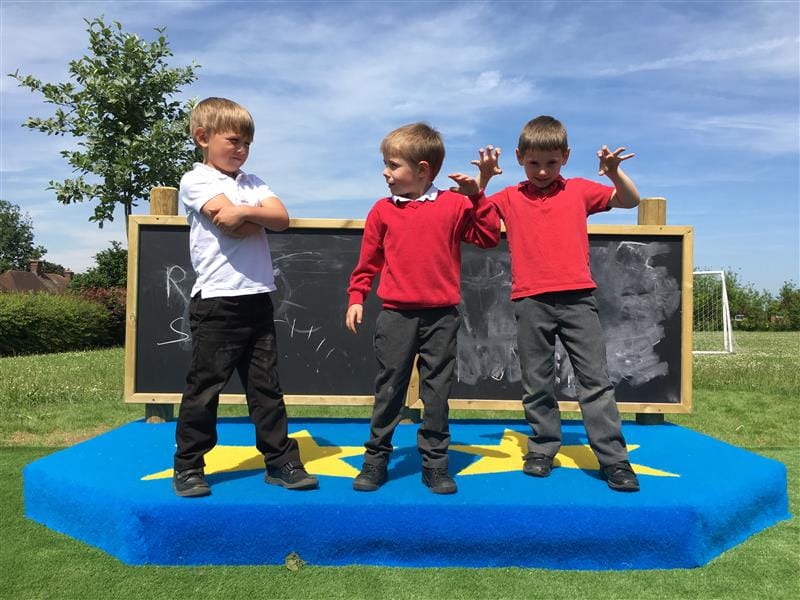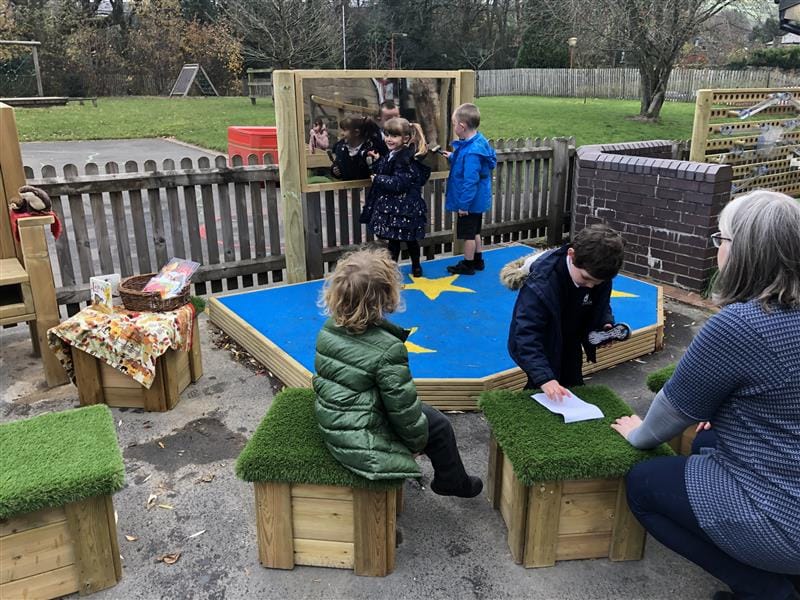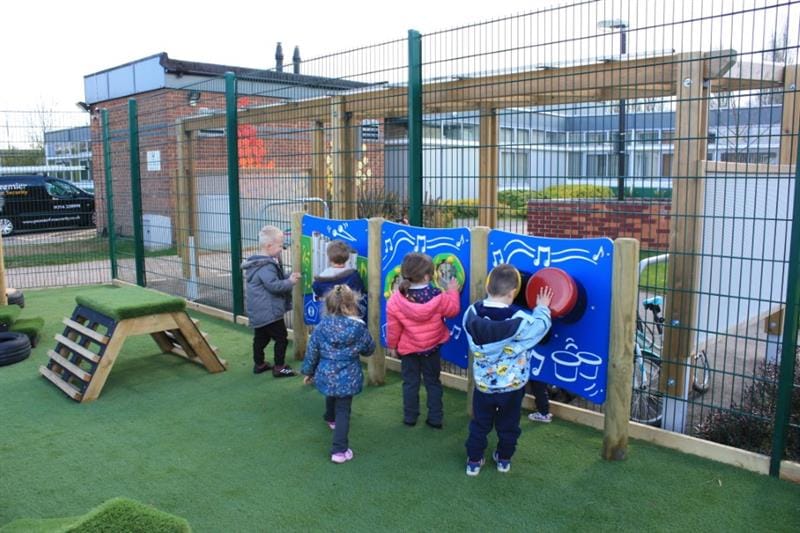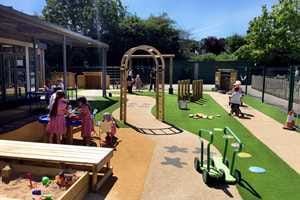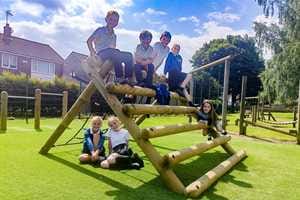
Lesson Ideas and Activities
Top 9 Playground Activities For Phonics Learning!
Phonics is the method used to teach children to read and write. It enables those beginning to read to decode words by sounding them out and then blending the sounds together until they can hear what the word is.
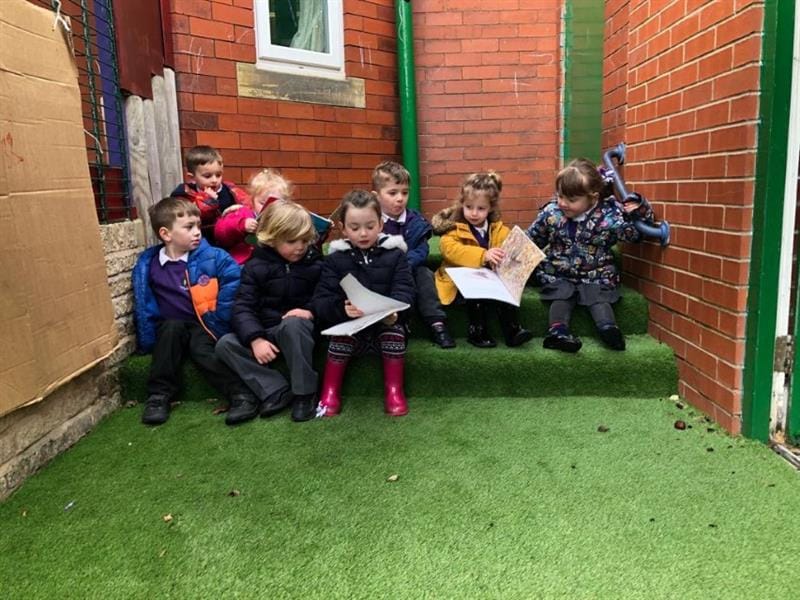
Due to this being so important for children’s literacy skills, lessons need to be exciting and stimulating.
As International Literacy Day approaches, we thought that this would be a great time to share our top 9 exciting outdoor activities to enhance your children’s phonics learning.
Through these 9 exciting activities, children will find themselves glued to the subject of literacy, opening their mind up to new literacy-related subjects.
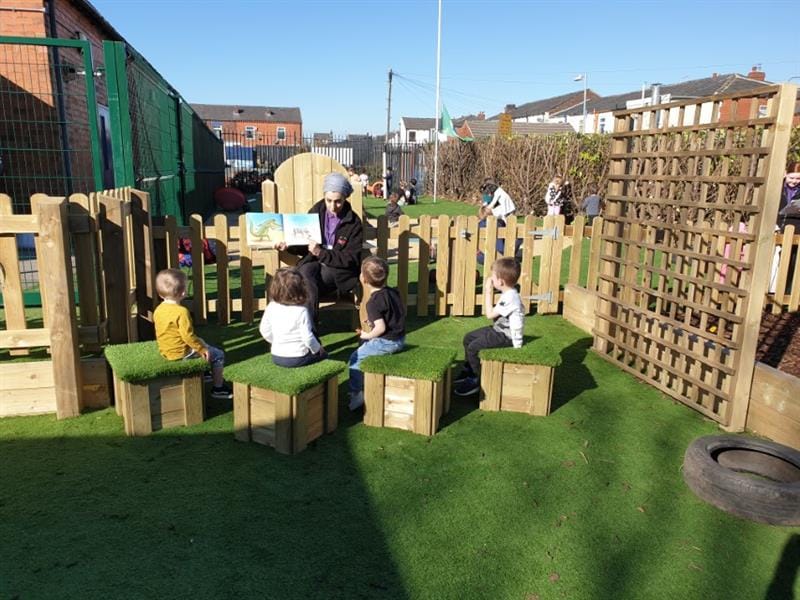
1. Shared and Guided Reading
The outdoor learning environment is a fantastic area for both shared reading and guided reading. The fantastic Storytelling Chair combined with Moveable Artificial Grass-Topped Seats provides a lovely area for inspiring reading to take place.
Story Telling Areas create an intriguing space, engaging children in the story being told while enthusiastic to read themselves. Teachers can take their small groups of pupils outdoors and into this area to work and develop a variety of cognitive skills.
Children can sit in the giant Storytelling Chair to read to the rest of the group while being supported and coached by the teacher. Eager to sit in the big chair and read to others sitting around, teachers will never have a problem encouraging the children to read.
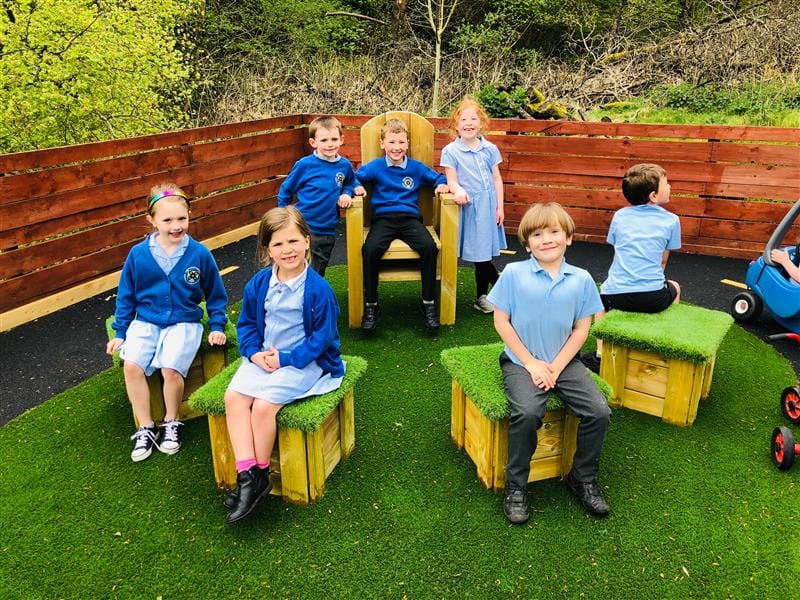
As well as this, the outdoors provides a unique and relaxing environment to develop their self-confidence, along with their reading skills. It provides the perfect excuse to escape the constraints of an indoor classroom.
Not only does this arrangement of seating provide a stimulating area for story telling and reading, but it also assists in developing children's listening skills and turn taking as they wait for their turn to read.
Naturally, sitting in the big chair enhances children’s self-confidence as they read the sentence or selected story to each other.
2. Role Play Ideas For Phonics
Some children learn better through teaching rather than learning through listening or sitting; letting their minds wander into their own imaginary world.
We all know children love to role play as grown ups, so why not use activities children know and participate in to teach phonics, too?
Challenge your children to replicate what a teacher does and to teach one another your primary focus on phonics. It's a brilliant way to engage children in learning as the kids will love to play the role of teacher and help their "students" develop their problem solving techniques by decoding words.
You can enhance the role play by providing props and a great setting for the activity to take place. Use a structure like the Giant Playhouse to encourage outdoor role play whilst providing multiple resources to enhance the lessons your children teach.
3. Phonics ‘Treasure’ Hunt
Sand and mud boxes are amazing Messy Play Resources for literacy outdoors.
They can be used for a 'Phonics Pebbles Treasure Hunt'. Bury a number of different pebbles or cubes with sounds or words written on them. Ask your children to find particular sounds or provide the words and ask children to find the phonemes needed to make the word.
This activity can also be taken a step further when children are asked to blend the sounds they have found to create words. The sound ‘th’ and supporting letters can be hidden to engage children in this game.
The sounds and letters included can become more advanced or simpler depending on the level of children in your group.
Engaging children in phonics activities through sensory play enhances learning as it’s a stimulating, interesting activity that’s away from the carpet or tables and laminated card – something exciting and new to the children which feels like play and not a lesson.
In addition, as children scoop and dig enthusiastically through the mud or sand, fine motor skills advance while providing a sensory experience.
4. Mark Making Outdoors – Read and Write
Mark Making Panels, like whiteboards and chalkboards, can enable teachers to take their children’s phonic sessions outdoors. The outdoors is an environment they can relax and feel as if they are playing, when really they are learning through play.
Create stimulating and engaging games that involve phonics learning through mark making panels. Ask children to write the word or sound you say before revealing the answer.
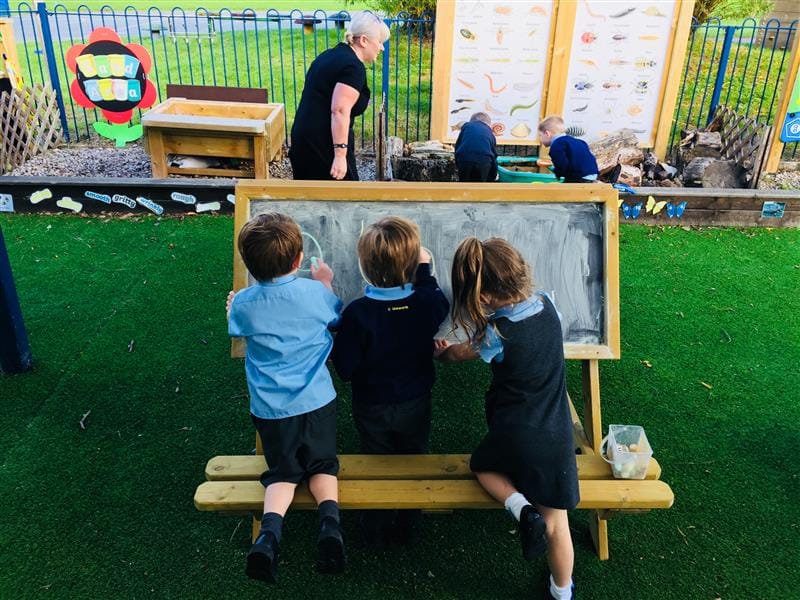
If every child is correct, move onto the next word. If not, take the opportunity to coach the children who were not quite right and encourage others to support them in their learning. You can make the words and sounds easier or harder depending on ability.
As well as phonics, this activity encourages friendly competition, develops fine motor skills, hand writing and children’s letter formation.
5. Mark Making – Label and Caption
Our Mark Making Panels are magnetic and can be used to attach a picture or drawing which children can label and caption: enhancing their literacy and phonics learning in the outdoor environment. Alternatively, provide children with the caption or label and ask children to draw the image it is describing.
For those who are still getting to grips with phonics, magnets can be used to match the words and pictures. Children can work together to match the words and pictures or use chalk to draw lines.
Moving small magnets, writing and drawing is an excellent way to develop children’s fine motor skills and encourage early literacy skill development.
6. Create a Focus Group
Outdoor Classrooms are the perfect addition to any school playground. They are an extra teaching resource that enables teachers to take children outdoors into smaller grounds. Surrounded by nature and in a more calming environment, this alternative classroom refocuses children on the lesson at hand and gives phonics some excitement.
With a giant chalkboard or whiteboard, children who are struggling on the same area can be taken outdoors together to work in a smaller, more focused group – providing the support the children need.
Protected from the elements with cladding and a waterproof roof, the Outdoor Gazebo can be used all year round without the fear of the ever predictable British weather preventing learning from taking place.
7. Create a Writing Competition
Participating in group activities surrounding phonics is a lovely way to enhance phonics learning. The Outdoor Performance Stage provides an excellent resource that can enhance phonics learning through group activities.
A small group of children can stand on the stage, wait for a teacher to shout out a word before they sound it out or write it on the chalkboard behind them. Children can even write the word in the air or act out the sound.
In a different environment, on a magical performance stage, children feel as if they are playing, disguising the learning, and will enthusiastically participate in the activity. The Performance Stage promotes self confidence and self esteem development as they perform the sounds and words.
Taking phonics lessons outdoors onto the Performance Stage is a fantastic way to encourage children to learn the words and sounds and give the lesson some excitement.
8. Perform The Word
Another exciting Performance Stage activity includes a selection of words being written on the chalkboard and children acting out a word as others sit around and guess what word they are trying to act out: a fantastic way to involve the entire class in this activity.
All children’s learning will develop as every child playing has to read the words to play the game. Guessing the words promotes friendly competition as the children compete to see which team can get the highest number of correct answers.
Performing the word develops children’s self-confidence and self-esteem while creating an exciting atmosphere.
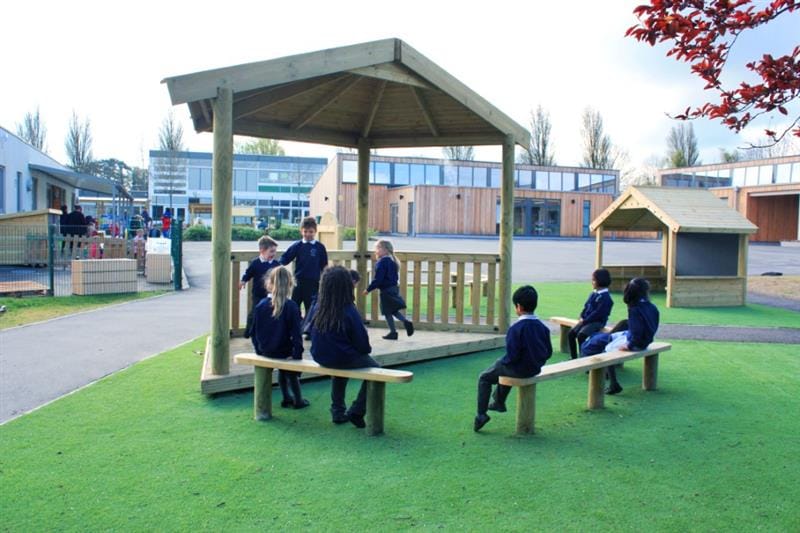
9. Exploring Sounds Through Music
Outdoor Musical Instruments can be used particularly during phase one phonics. At first, children can use the musical equipment to develop their awareness of the sounds made by a number of different instruments and sound makers.
They can also compare and match sounds to the instruments or children can be challenged to make loud and quiet sounds.
Alternatively, the instruments can be used during story time; banging on the drum when a character in the story knocks on the door.
Musical instruments included in the outdoor area create an atmosphere where children don’t have to worry about how much noise they are making while they explore and experiment with different sounds before distinguishing between them.
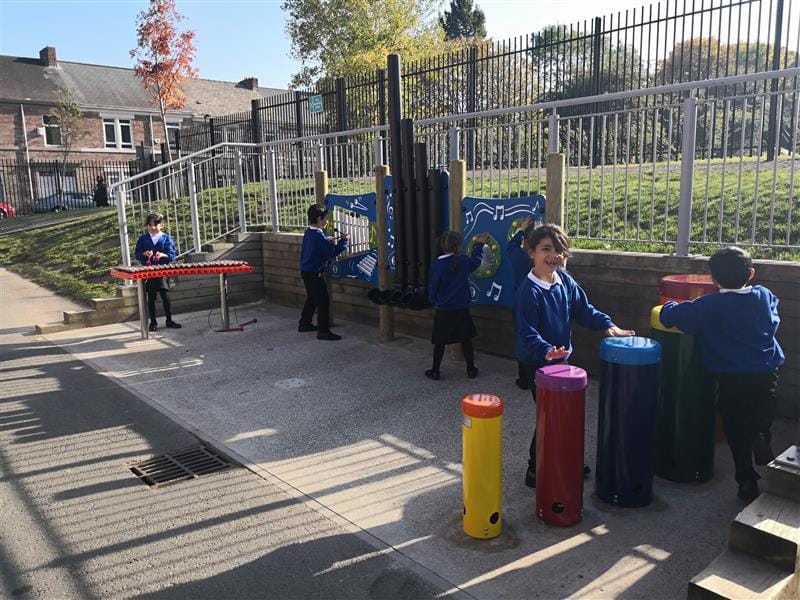
The outdoor environment should provide opportunities for children to read and write the words they have been learning in their phonics sessions and for phonics sessions to be taken outdoors. If you would like to take your literacy lessons and the other areas of the curriculum outdoors, feel free to contact us to discuss redeveloping your EYFS playground further.
